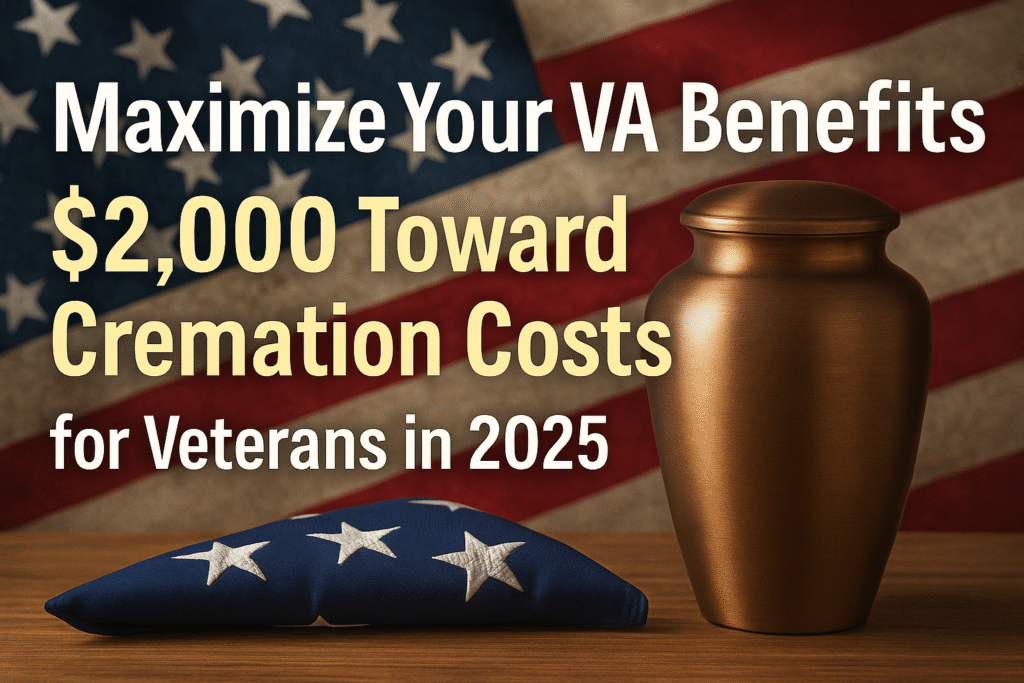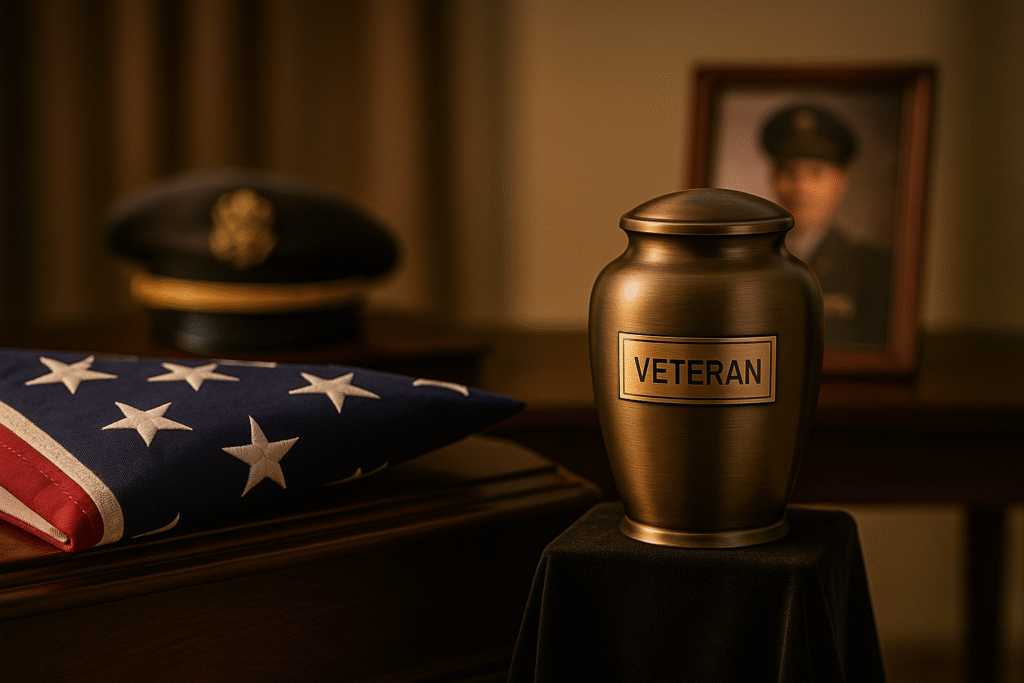
For many families, navigating the financial aspects of a loved one’s passing can be overwhelming. Fortunately, the U.S. Department of Veterans Affairs (VA) offers burial benefits that can alleviate some of these burdens. In 2025, eligible families can receive up to $2,000 toward cremation costs for veterans. This guide provides a comprehensive overview of these benefits, eligibility criteria, and the application process.
Understanding VA Burial Benefits
The VA provides burial allowances to help cover funeral and burial expenses for eligible veterans. These benefits are reimbursements, meaning the family must first pay the expenses and then apply for reimbursement.
Service-Connected Death
If a veteran’s death is service-connected, the VA may reimburse up to $2,000 in burial expenses. Additionally, if the veteran is buried in a VA national cemetery, some or all of the cost of transporting the deceased may be reimbursed.
Non-Service-Connected Death
For non-service-connected deaths occurring on or after October 1, 2024, the VA provides:
- A burial and funeral expense allowance of $978
- A plot or interment allowance of $978 (if not buried in a national cemetery)
Eligibility Criteria
To qualify for VA burial benefits, the following conditions must be met:
- You paid for the veteran’s burial or funeral, and you have not been reimbursed by another government agency or source.
- The veteran was discharged under conditions other than dishonorable.
- One of the following applies:
- The veteran died because of a service-related disability.
- The veteran was receiving VA pension or compensation at the time of death.
- The veteran was entitled to receive VA pension or compensation but chose to receive military retirement or disability pay instead.
- The veteran died while hospitalized by the VA or while receiving care under VA contract.

Application Process
Applying for VA burial benefits involves several steps:Blanker+1Veterans Affairs+1
- Complete VA Form 21P-530EZ: This is the Application for Burial Benefits. VA Forms -+8OC Veterans Service Office+8va-form-21p-530.pdffiller.com+8
- Gather Necessary Documents:
- Veteran’s death certificate
- Proof of funeral and burial expenses (receipts)
- Discharge papers (DD214 or equivalent)
- Submit the Application:
- Online through the VA’s website
- By mail to the appropriate VA regional office
- In person at a VA regional office
It’s important to note that for non-service-connected deaths, the application must be submitted within two years of the veteran’s burial or cremation. There is no time limit for service-connected deaths.
Additional Benefits
Beyond the burial allowance, the VA offers other benefits to honor veterans:
- Presidential Memorial Certificate: A certificate expressing the nation’s gratitude, signed by the President.
- Headstones and Markers: Provided for eligible veterans, even if not buried in a national cemetery.
- Burial Flags: An American flag to drape over the casket or accompany the urn.
- Military Funeral Honors: Including the folding and presentation of the flag and the playing of Taps.
Real-World Example
Consider the case of John, a Vietnam War veteran who passed away in 2025 due to a service-connected illness. His family chose cremation, which cost $3,000. They applied for VA burial benefits and received a $2,000 reimbursement. Additionally, they were provided with a burial flag and a Presidential Memorial Certificate, honoring John’s service.
Tips for a Smooth Application
- Keep Detailed Records: Save all receipts and documents related to funeral and burial expenses.
- Consult a VA Representative: They can provide guidance and ensure all forms are correctly completed.
- Apply Promptly: Especially for non-service-connected deaths, to meet the two-year deadline.
Conclusion
The VA’s burial benefits are designed to honor the service of veterans and ease the financial burden on their families. By understanding the eligibility criteria and application process, families can ensure they receive the support they deserve during a challenging time.

